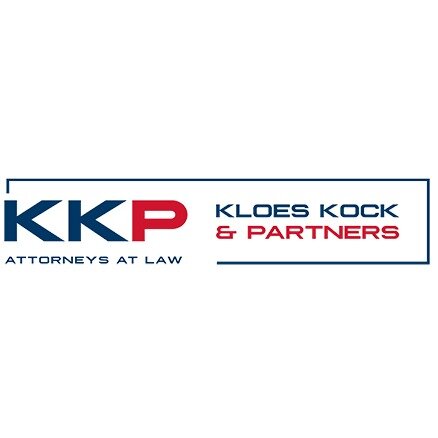Best Structured Finance Lawyers in Aruba
Share your needs with us, get contacted by law firms.
Free. Takes 2 min.
Or refine your search by selecting a city:
List of the best lawyers in Aruba
About Structured Finance Law in Aruba
Structured finance refers to sophisticated financial instruments and transactions that go beyond conventional lending or investment mechanisms. In Aruba, structured finance plays a significant role in supporting both local and international businesses by enabling access to capital, risk management tools, and investment opportunities. Aruba's favorable legal and regulatory environment, modern financial services sector, and its status as a constituent country within the Kingdom of the Netherlands make it a popular jurisdiction for structured finance arrangements, including securitizations, asset-backed securities, and project financings.
Why You May Need a Lawyer
Structured finance transactions are inherently complex and often involve multiple stakeholders, cross-border elements, and significant sums of money. You may need a lawyer with expertise in this field in several situations, such as:
- Establishing or managing a special purpose vehicle (SPV) in Aruba
- Participating in securitization or asset-backed security transactions
- Structuring cross-border financing deals involving Aruban entities
- Navigating regulatory approvals and compliance requirements
- Drafting, reviewing, or negotiating structured finance documentation
- Tax planning and risk mitigation related to complex financial instruments
- Litigation or dispute resolution involving structured finance transactions
Engaging a lawyer ensures your interests are protected, helps you avoid costly errors, and provides clarity on local compliance and enforcement.
Local Laws Overview
Aruba's legal system is based on civil law traditions, with influences from Dutch law. Some key aspects of local laws relevant to structured finance include:
- Company Law - Flexible company structures, including the Foundation (Stichting) and Exempt Company (VBA/NV), allow for effective use of special purpose vehicles.
- Financial Supervision - The Central Bank of Aruba regulates and supervises financial entities and anti-money laundering compliance.
- Securities Legislation - Securitization and the offering of asset-backed securities are permissible within the regulatory framework.
- Taxation - Aruba offers favorable tax incentives for certain international finance activities, subject to compliance with transparency and substance requirements.
- Insolvency and Security Interests - Local laws outline trusteeship, the ranking of claims, and the perfection of security interests, which are important in structured transactions.
- Cross-border Recognition - Aruba recognizes and enforces foreign judgments and contracts, provided they comply with local policy and procedural rules.
It is crucial to work with legal professionals who can interpret and apply these provisions to your specific situation.
Frequently Asked Questions
What is a special purpose vehicle (SPV) and why is it used in Aruba?
An SPV is a legal entity created to isolate financial risk. In Aruba, SPVs are commonly used in structured finance as they can hold assets, issue securities, and limit liabilities to protect the primary business or investor.
Can foreign investors participate in structured finance deals in Aruba?
Yes, Aruba actively encourages foreign investment and allows non-residents to participate in structured finance transactions, subject to regulatory compliance and due diligence.
What assets can be securitized in Aruba?
Typically, receivables, loans, mortgages, leases, and other income-generating assets can be securitized, depending on the specific structure and regulatory requirements.
Is local regulatory approval necessary for structured finance transactions?
Most structured finance transactions require some level of notification or approval by the Central Bank of Aruba, especially if financial institutions or public offerings are involved.
What are the tax implications for structured finance in Aruba?
Aruba offers certain tax benefits for international financial activities, but full compliance with local substance and anti-avoidance regulations must be demonstrated. Tax advice should be sought in conjunction with legal assistance.
How are security interests perfected in Aruba?
The perfection of security interests (such as pledges or mortgages) is governed by specific registration and notification requirements under Aruban law, often requiring public deeds or notarial acts.
Are there restrictions on repatriating profits from structured finance deals?
Generally, Aruba imposes no restrictions on the repatriation of profits, dividends, or interest, provided that tax and regulatory obligations are met.
What role does the Central Bank of Aruba play?
The Central Bank of Aruba supervises financial markets, licenses certain activities, and enforces anti-money laundering and compliance laws relevant to structured finance.
Can Aruban courts enforce structured finance contracts governed by foreign law?
Aruban courts generally uphold the choice of foreign law and recognize foreign judgments where there is no conflict with local public policy or mandatory local laws.
What is the typical process for setting up a structured finance transaction in Aruba?
The process usually involves selecting the appropriate entity structure, drafting legal and transactional documentation, obtaining necessary regulatory approvals, and ensuring compliance with tax and substance regulations.
Additional Resources
These resources may provide further guidance or assistance for those seeking legal advice in structured finance in Aruba:
- Central Bank of Aruba - Regulator of the financial sector and repository of regulations and guidance
- Aruba Chamber of Commerce - Information on business entities, company formation, and corporate regulations
- Aruban Bar Association - Directory of qualified legal professionals
- Department of Economic Affairs - Guidance on foreign investment and economic policy
Next Steps
If you need legal assistance with a structured finance transaction in Aruba, consider the following steps:
- Identify the nature and objectives of your transaction
- Gather relevant documentation, such as company records, proposed deal structures, and financial information
- Contact a qualified lawyer or law firm experienced in structured finance and Aruban law
- Arrange for an initial consultation to discuss your situation, potential risks, regulatory issues, and compliance needs
- Work with your legal advisor to structure the transaction, prepare the necessary paperwork, and ensure regulatory approvals are obtained
Structured finance in Aruba can offer significant benefits, but expert legal advice is key to making the most of the jurisdiction’s opportunities while ensuring full legal and regulatory compliance.
Lawzana helps you find the best lawyers and law firms in Aruba through a curated and pre-screened list of qualified legal professionals. Our platform offers rankings and detailed profiles of attorneys and law firms, allowing you to compare based on practice areas, including Structured Finance, experience, and client feedback.
Each profile includes a description of the firm's areas of practice, client reviews, team members and partners, year of establishment, spoken languages, office locations, contact information, social media presence, and any published articles or resources. Most firms on our platform speak English and are experienced in both local and international legal matters.
Get a quote from top-rated law firms in Aruba — quickly, securely, and without unnecessary hassle.
Disclaimer:
The information provided on this page is for general informational purposes only and does not constitute legal advice. While we strive to ensure the accuracy and relevance of the content, legal information may change over time, and interpretations of the law can vary. You should always consult with a qualified legal professional for advice specific to your situation.
We disclaim all liability for actions taken or not taken based on the content of this page. If you believe any information is incorrect or outdated, please contact us, and we will review and update it where appropriate.
Browse structured finance law firms by city in Aruba
Refine your search by selecting a city.











